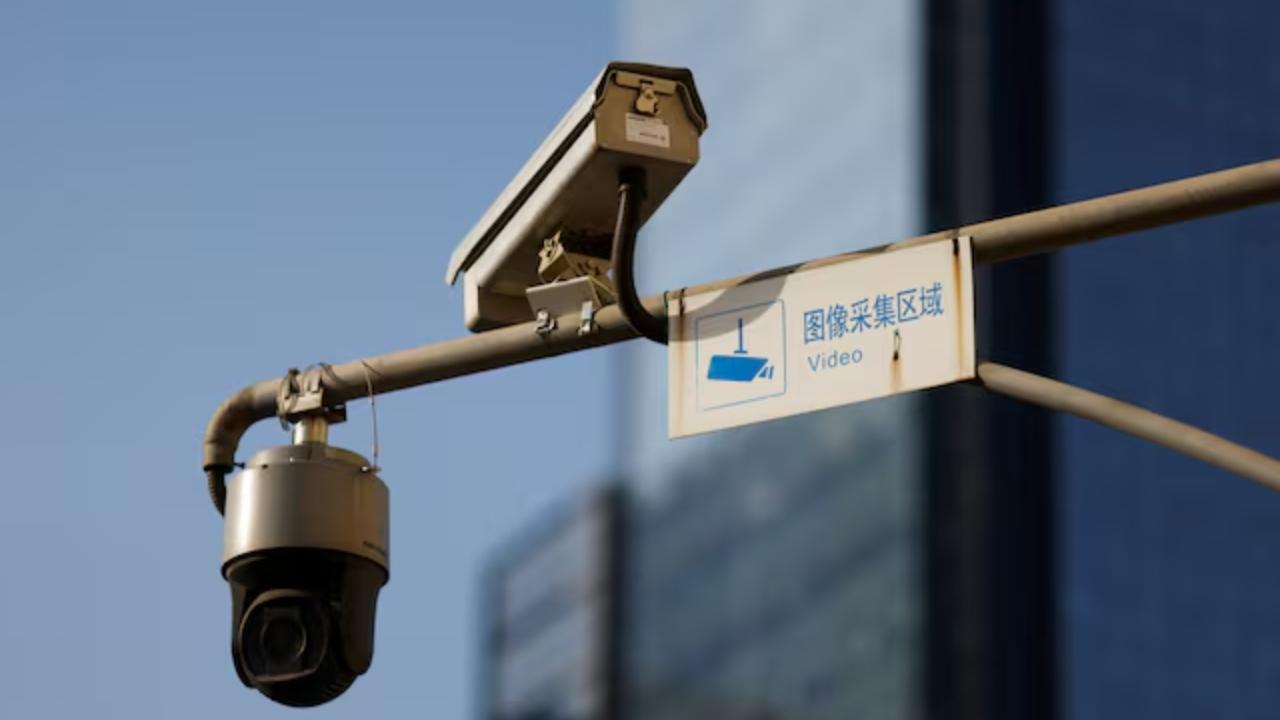
Shawn Clark, UCF Football Coach, Dies at Age 50
Shawn Clark, 50, UCF’s offensive line coach and former Appalachian State head coach, dies after rece

Photo : Reuters
In a dramatic escalation of the ongoing tensions between China and Western democracies over security and surveillance, Chinese surveillance equipment manufacturer Hikvision has launched a formal legal challenge against the Canadian government. The move follows an unprecedented shutdown order issued by Canadian authorities, citing national security concerns tied to the company’s operations. This legal standoff comes at a time of heightened geopolitical rivalry and deepening scrutiny over Chinese technology firms’ influence in Western nations.
Hikvision’s Canadian unit is not taking the order lightly. It has submitted a judicial review application while simultaneously requesting a stay of enforcement, allowing it to continue operating temporarily. The outcome of this case could have sweeping consequences not just for Hikvision, but for the broader global debate surrounding foreign surveillance technologies and national sovereignty.
The Background: What Triggered the Shutdown?
On June 27, 2025, Canada’s federal government issued a formal order under the Investment Canada Act requiring Hikvision to cease all operations within the country. The decision followed a national security review conducted by Canadian intelligence and regulatory agencies. Although the details of the review were not disclosed to the public, Canadian officials stated that the company's operations posed “a risk to national security.”
This action followed a trend of similar regulatory crackdowns against foreign firms operating in sensitive industries, particularly those from China. Canadian authorities have increasingly signaled a more assertive approach toward foreign investment in critical infrastructure, telecommunications, and surveillance technology sectors. The Hikvision case represents the most significant such move to date.
Hikvision’s Response: Legal Action and Defense Strategy
Hikvision, one of the largest suppliers of surveillance and security camera equipment globally, responded by filing a notice of application with the Canadian Federal Court. The company is seeking a judicial review of the government’s decision, questioning both the process and the rationale behind the shutdown order.
In its legal application, Hikvision requested a stay of enforcement on the order, arguing that it would suffer irreparable harm if forced to shut down operations before the legal challenge could be resolved. The court granted a temporary stay, allowing the company to continue operating its Canadian business for the time being.
According to a spokesperson from Hikvision Canada, the company believes that it has not violated any laws and has always complied with Canadian regulations. The company expressed faith in Canada’s judicial process and stated that it is confident it will receive a fair hearing.
Canada’s Position: National Security Comes First
Although Canadian authorities have remained tight-lipped about the specific risks posed by Hikvision, the decision reflects growing unease in the West about the potential misuse of Chinese technology. The concerns generally revolve around allegations of surveillance, data harvesting, unauthorized access to sensitive information, and undue influence by foreign governments.
Canada’s government emphasized that its decision was made in accordance with existing national security laws and followed a thorough, multi-agency assessment. According to officials, the presence of Hikvision in the Canadian market could have compromised the integrity of critical infrastructure and sensitive government and commercial operations.
The government did not provide technical evidence to the public but stated that confidentiality was necessary to protect classified information and national security protocols.
Hikvision’s Global Controversies: A Pattern of Scrutiny
Hikvision has not been a stranger to global controversies. Over the last five years, it has faced growing international backlash over its involvement in surveillance programs allegedly targeting ethnic minorities in China, particularly in the Xinjiang region. Numerous human rights groups have accused the company of supplying equipment used in mass surveillance and alleged detention centers.
These allegations have led to widespread sanctions and bans in the United States, the European Union, the United Kingdom, and Australia. Several Western countries have removed Hikvision cameras from government buildings, citing potential security risks.
In the United States, Hikvision and several of its subsidiaries were placed on the Entity List, prohibiting American firms from doing business with them without special licenses. Washington has also implemented federal procurement bans for equipment produced by the company, effectively removing it from the public sector.
Despite Hikvision’s repeated denials of wrongdoing and assurances that its operations are fully legal and independent of any foreign government influence, the company has struggled to shake off its controversial reputation.
China’s Diplomatic Response: Condemnation and Retaliation Threats
In response to Canada’s shutdown order, the Chinese government issued a strong condemnation. Through its foreign and commerce ministries, Beijing called on Ottawa to reverse what it described as an “unjustified political attack” on a legitimate Chinese enterprise. China warned that Canada’s actions would damage bilateral relations and harm its own business interests in China.
Chinese officials further accused Canada of using the guise of national security as a pretext for discriminatory practices against Chinese companies. The incident adds to the growing list of trade, political, and diplomatic tensions between the two nations over the past decade.
This rhetoric suggests that retaliation may follow, potentially targeting Canadian firms operating within China or placing restrictions on Canadian imports.
Legal and Political Ramifications in Canada
The Hikvision case has quickly turned into a test case for how Canada will balance its open investment policies with emerging national security concerns in the era of globalized technology. For decades, Canada has prided itself on welcoming foreign investment. However, recent global shifts have forced a re-examination of how to safeguard critical infrastructure without stifling innovation or alienating economic partners.
The Canadian government’s decision to invoke the Investment Canada Act signals a shift toward more aggressive enforcement and greater scrutiny over foreign-controlled enterprises, especially in industries considered vital to national security.
Legal experts believe that the outcome of this case could set a precedent. If the court sides with Hikvision, future regulatory action against foreign tech firms might require higher evidentiary standards and more transparency. On the other hand, if the shutdown is upheld, it would reinforce the government's ability to act decisively in national interest cases.
Broader Implications for Canadian Businesses and Consumers
Hikvision has a wide footprint in the Canadian market, supplying surveillance products to private businesses, municipal governments, schools, and infrastructure projects. The company’s systems are known for being cost-effective and technologically advanced, making them attractive to budget-conscious organizations.
If Hikvision’s operations are permanently halted, there could be short-term disruptions in procurement for customers who rely on its products. These clients will need to find alternative suppliers, which could be more expensive or less integrated.
Additionally, Canadian importers, system integrators, and retailers that rely on Hikvision products may face commercial losses and supply chain challenges. Some have raised concerns that the government did not provide adequate notice or time to prepare for the shutdown.
However, cybersecurity experts argue that the long-term benefits of removing potential security vulnerabilities outweigh the short-term economic impacts.
The Surveillance Technology Debate: Ethics vs Utility
This case reignites the broader ethical debate about the use of surveillance technologies in public and private life. While modern camera systems offer improved safety, crime prevention, and efficiency, they also raise questions about privacy, oversight, and potential misuse.
With companies like Hikvision dominating the global market, and allegations of human rights abuses tied to their products, there is increasing pressure on governments to ensure that public procurement and infrastructure are not complicit in ethical violations.
Some privacy advocates in Canada have applauded the government’s move, stating that it sends a message that security, ethics, and transparency must come before economic convenience.
Next Steps in the Legal Process
Hikvision’s legal battle is expected to stretch over several months, possibly even longer depending on appeals and judicial backlog. In the interim, the temporary stay allows the company to maintain its presence in Canada, but this status is fragile.
The court will first review whether the government’s decision complied with legal procedures and standards under the Investment Canada Act. If the judicial review finds that the decision was made improperly or without sufficient evidence, the shutdown order could be overturned.
However, if the court sides with the government, Hikvision would be forced to shut down operations permanently, potentially triggering further legal responses and international diplomatic engagement.
Strategic Considerations for Other Countries
The situation in Canada is being closely watched by other nations wrestling with similar concerns about foreign surveillance technologies. Governments in Europe, Southeast Asia, and the Middle East are paying attention to how Canada handles legal rights, national security, and trade pressures.
Canada’s handling of this case could influence how other Western democracies formulate laws to protect national interests while avoiding accusations of bias or protectionism.
Conclusion
Hikvision’s legal challenge against Canada’s shutdown order marks a pivotal moment in the ongoing debate over surveillance technology, foreign investment, and national sovereignty. At its core, the case is about more than just one company—it’s about how nations safeguard their interests in a digitally interconnected world, and how they respond to threats that may not be immediately visible but carry long-term consequences.
While the courts will ultimately decide Hikvision’s fate in Canada, the ripple effects will be felt globally. For governments, corporations, and citizens alike, this legal battle is a wake-up call to re-evaluate the systems, technologies, and policies that govern security, privacy, and ethics in the modern age.